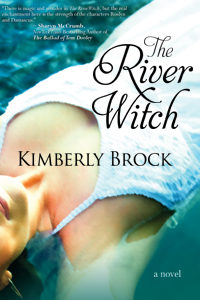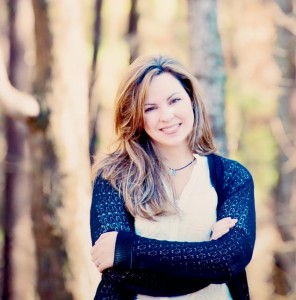 Look Away, Away
Look Away, Away
by Kimberly Brock
I think writers of any ilk can benefit from a healthy appreciation of setting, but regional – particularly southern writers – are haunted by our connection to, love of, loss of, and clawing crawling, desperate journey back to – the land. Oh, I wish I was in Dixie…away, away. Every song is a lullaby of going home. We close our eyes and dream of the old house in the valley. We contemplate a city skyline, thinking only of the ancient ridges that surrounded freshly turned lowlands where we walked a row as a child. That old scene where Scarlet O’Hara’s father warns her that land is the only thing that matters? We took that old man seriously and so, when we write our stories, do our characters. Their whole world, how our characters view their circumstances, why they struggle, why they rejoice – it’s all reflected in the setting. Pick up any piece of southern fiction and you will understand what Lee Smith meant when she said of regional literature, “There is an intimate identification with landscape. Setting is so important that it often defines the lives and possibilities of its characters…Place is the central defining factor of southern writing. There’s just simply more there, there.”
In writing THE RIVER WITCH, I knew Roslyn’s story would end up on the island – I knew she would go into a kind of exile. I imagined Roslyn’s need for isolation, and her need for great beauty, which led me to the Georgia Coast. I wanted it to be a place that would keep her off balance so she’d have to struggle to understand it and meet its demands. I needed a place that Roslyn believed was a complete departure. My character’s story is also the story of this environment and if you look at one, you will inevitably discover something about the other.
on the island – I knew she would go into a kind of exile. I imagined Roslyn’s need for isolation, and her need for great beauty, which led me to the Georgia Coast. I wanted it to be a place that would keep her off balance so she’d have to struggle to understand it and meet its demands. I needed a place that Roslyn believed was a complete departure. My character’s story is also the story of this environment and if you look at one, you will inevitably discover something about the other.
I’d written a good part of the first draft before Roslyn’s past and her childhood memories of Glenmary, Tennessee, began to surface. There, I found a people rooted for centuries in hard ground. Ancient mountains that would not be moved. Do you see these places? Then you see the people who inhabit them. I came to understand these were the characteristics at the core of Roslyn, this place defined all the ways she was at odds with herself, and as with everything else in the novel, these seemingly contradictory environments and cultures of Appalachia and Coastal Georgia would serve as mirrors for one another – just as the characters tend to hold up mirrors to one another. Some of this was written intentionally, but a great deal of it evolved with the story.
I’d always been fascinated by the idea that the Sea Islands shift and change, the idea of the alligators roaring season, the romance of the great live oaks, and then there was the element of superstition that lent itself to Roslyn’s haunting. The island was like going back to the mire from which we all emerge. I chose the island setting so she could fight her way back from her loss, physically and psychologically. That’s what Roslyn’s character ultimately faced – what each of us, ANY character ANY place, faces – a transformation that leads to resolution. She had to learn to shift and change to survive, just like the land beneath her feet. Her connection to place informs the reader of Roslyn’s internal journey through metaphor, but it also grounds the reader firmly in a compelling reality, one that every reader will envision for themselves. We are called to whatever away, away means home. To me, the true power of setting is that it gets to the heart of our human search for belonging.
Barbara Kingsolver said it best when she spoke of setting. “I have places from which I tell my stories. So do you, I expect. We sign the song of our home because we are animals…Among the greatest of all gifts is to know our place.”
MAKE SURE YOU GRAB THE RIVER WITCH TODAY FOR JUST $1.99! ONLY FOR A LIMITED TIME!








